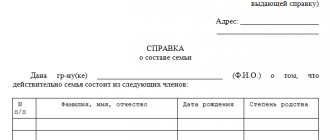Grounds for accepting inheritance through court
Turning to the court during the process of accepting an inheritance is not always caused by disagreements in the division of property. The grounds for registering an inheritance in court may be a lack of documents, missing the deadline for accepting the inheritance, or many other situations. There may be attempts to invalidate the will.
The most common reasons for litigation are:
- Actual acceptance that needs to be legitimized;
- Controversial situations between applicants;
- Attempts to recognize one of the applicants as an unworthy heir;
- Doubts regarding the authenticity of the will, the mental state of the testator;
- Lack of documents;
- The need to prove relationship through an examination;
- The property was not included in the list of the hereditary estate;
- Controversial issues regarding the division of property;
- Missing the deadline for entry into rights.
Judicial practice encounters many situations that require individual consideration.
Conflict and disputable situations between heirs can be of a very diverse nature. Inheritance is determined by the rules of the law, the wishes of the testator, set out in writing and certified by a notary.
If controversial situations arise, the judicial authority will pay attention not only to the order of blood ties, but also to the relationship between the deceased and the applicant. The will drawn up should not contradict legislative acts providing for the allocation of a mandatory part for the socially vulnerable.
The successor may actually enter into inheritance rights. Even such a circumstance will require legalization of rights through the courts. The fact is recognized as accomplished if there is documentary evidence of acceptance of property, maintenance of accounts, payment of utilities, no later than six months after the death of the testator.
We recommend reading: Application for actual acceptance of inheritance: sample
Interested parties have the right to appeal to the court with a demand to recognize one of the receivers as unworthy if there are documented facts of these circumstances. The applicant may commit unlawful acts in relation to the deceased, fail to fulfill obligations to the testator, hide facts, or interfere with the legal division of property. Any appeal to the court must be supported by documents.
The applicant may untimely express a desire to enter into inheritance rights. If there are good reasons, a documentary base, and witnesses, the deadline for entering into inheritance rights can be restored through the court.
The division of property can be done peacefully through a voluntary agreement with other claimants.
If the judicial authority considers the arguments and evidence weighty, it may grant the request. Previously issued certificates are invalidated and property is redistributed.
A will can be challenged under certain circumstances. The owner’s signature may raise doubts, mental deviations are possible, or there may have been irregularities in the drafting process. Facts require evidence; an examination is possible. It is possible to challenge a will and acts of document adjustments.
Often certain objects are not included in the list of the estate. The property may be under construction, the purchase price has been paid, and the documents are being reissued. The applicant will have to provide documentary evidence that the object belongs to the deceased.
Which court should I go to?
To understand how to enter into an inheritance through the court , you need to clearly decide on the choice of the branch where you need to file a claim.
Depending on the specifics of the request, the selection of department is made. The appeal can be submitted at the place of residence of the defendants. If there are several defendants, you can apply at the location of the inherited property.
The outcome of the event may depend on the correct choice of the judicial body. An incorrectly chosen location will cause failure. Repeated appeal is possible with an appeal to a higher authority.
Jurisdiction of inheritance cases
Inheritance disputes are dealt with in district courts, as well as equivalent courts - city and inter-district. Territorial jurisdiction in inheritance cases depends entirely on the parties and the composition of the estate, as well as the nature of the dispute.
- At the place of residence of the defendant, if there is only 1 defendant in the case, there is no dispute about real estate.
- At the choice of the plaintiff - if there are several defendants, and the case is not related to real estate.
- By location of real estate - in disputes surrounding real estate.
Deadlines for filing a claim
Despite the terms of inheritance defined in Art. 1154 of the Civil Code of the Russian Federation, the deadlines for going to court are:
- no more than 6 months - if the inheritance period is missed (from the moment when the successor learned about the opening of the inheritance, or was able to apply for it);
- no more than 1 year - to challenge a will that was drawn up under threats or other pressure on the testator (from the moment the plaintiff learned, should have learned about the contestability of the will);
- no more than 3 years - for other claims (from the moment the plaintiff learned of the violation of his rights and legitimate interests);
- no more than 10 years from the death of the testator - for any claims.
Sample statement of claim
A positive outcome of the case depends on the literacy of the application. Depending on the specifics of the problem, the text may vary significantly, but there are standard requirements that must be taken into account. One application may include several requests. An incorrectly completed application is one of the most common reasons for refusal.
We recommend reading: How the inheritance is divided between children after the death of their parents
The standard form should include:
- Name of the judicial authority, location address;
- Information about the compiler, registration address, actual residence;
- Full name of the defendant, data if there is a defendant;
- The estimated value of the property you are applying for;
- In the middle I write the name of the paper;
- The text contains information about the testator, the date of his death, and his last place of residence;
- Indicate the reasons for allocating a share, the details of the applicant;
- Information regarding other applicants;
- Describe the property
- The essence of the claim;
- Requirements;
- Refer to the legislative act;
- Write down a list of attached documents;
- Certify the paper with a signature and the date of preparation.
Everything described in the text of the statement is documented. It is necessary to provide a number of copies equal to the number of persons involved. Be sure to provide a copy of the state fee payment.
How to draw up a claim correctly
When drawing up a statement of claim, you must be guided by the requirements of Art. 131 Code of Civil Procedure of the Russian Federation. The appeal is submitted in writing, the number of copies corresponds to the number of participants in the process.
Basic provisions of the contents of the statement of claim
- name of the court
- plaintiff's details:
- Full name;
- location;
- contacts (phone, email).
- information about the defendant:
- Full name;
- location;
- Date and place of birth.
- cost of claim;
- information about the testator, property;
- a description of the situation that led to the dispute;
- evidence supporting the circumstances;
- information about pre-trial settlement;
- legal acts, references to legislation;
- final requirement;
- list of documents;
- signature of the plaintiff or representative.
The circumstances specified in the claim are supported by documented evidence.
List of documents attached to the claim
- passport (copy and original);
- will;
- death certificate;
- confirmation of family ties;
- property documents;
- assessment act;
- receipt of payment of state duty;
- evidence for the stated requirement.
Each situation has its own package of documents and evidence. The documents are numbered and filed with the statement of claim.
Required documents
Registration of inheritance through the court will require the provision of a number of documents that will allow the authority to become familiar with the essence of the issue and make a decision. You will need to provide documents confirming the right to inheritance, confirming the facts stated in the claim.
If we are talking about issues of division of property, recognition of one of the applicants as unworthy, attach a copy of the application for acceptance of the inheritance, documents for entry . Depending on the nature of the issue, the package may differ significantly. The main securities will be:
- Passport;
- If a representative takes part in the meeting, a power of attorney for the right to represent;
- If the registry office or notary refused to issue a document, a copy of the refusal;
- Grounds for allocating a share;
- Papers confirming the essence of the stated;
- Property valuation report;
- A copy of payment of the state fee.
If the number of documents is insufficient, the court may use the testimony of witnesses, conduct an examination, or postpone the consideration of the case until a package of papers is prepared. An unpaid fee will be the reason for refusal to satisfy the plaintiff’s request.
State duty when entering into an inheritance through the court
The state fee for filing a claim is 300 rubles per claim. If several claims are made, 300 rubles are paid for each claim.
If the requirement is for the division of inherited property, the amount of the state duty will depend on the price of the claim. State duty calculation table:
The state duty when registering an inheritance depends on the degree of relationship and the value of the property. Close relatives – 0.3% of the value of the inheritance, all others 0.6%
Deadlines for filing a claim
Registration of inheritance through the court requires a certain procedure. Recognition of inheritance through the court is possible within three years from the date of receipt of information about the violation of the plaintiff’s rights. In each case, a specific event can serve as a starting point. The court may refuse to recognize the right to inheritance. The successor has the right to appeal to a higher authority. Actual acceptance and establishment of kinship have no appeal period.
We recommend reading: Heirs of the third stage: division of property according to the law
If the remaining applicants received certificates, after a positive decision is made, they are canceled, and a redistribution takes place taking into account the revealed facts. If the successor is deemed unworthy, he is obliged to return all valuables and compensate for the amount of benefits received during the period of use.
Sample statement of claim for inheritance
The presented sample gives a clear idea of the content and format of the claim.
But when filling out the document, you must pay attention to a number of nuances.
- The “header” of the sample indicates the full name of the court and its address, as well as details of the participants in the process indicating their procedural status (plaintiff, defendant).
- The title of the statement of claim must correctly indicate the essence of the appeal.
- The descriptive part describes the situation extremely accurately and concisely. It is indicated who the testator is, which notary is handling the inheritance case, what exactly is the violation of the rights and interests of the plaintiff, and what measures he has taken to independently resolve the dispute.
- The plaintiff’s arguments in his favor are indicated very clearly, indicating the evidence and legal norms that substantiate the applicant’s position.
- Comprehensive requirements for the claim are prescribed.
- A list of applications must be provided.
Due to frequent updates to legislation and the legal uniqueness of each situation, we recommend obtaining a free telephone consultation with a lawyer. You can ask your question by calling the hotline number 8 (800) 555-40-36 or write it in the form below.
Arbitrage practice
The procedure for filing a claim and the procedure may vary depending on the situation. Inheritance proceedings and registration of inherited property may be preceded by many mandatory actions. Judicial practice has to study the presented facts, make unique decisions, and rely on world experience.
The least difficult are the processes associated with establishing the fact of dependency and the actual acceptance of property. Restoring the inheritance period directly depends on the presence of a serious reason, which is documented.
Before going to court, you need to prepare a package of documents, collect extracts, certificates, and copies. The stronger the evidence base, the higher the likelihood of success. Competently drafting an application is of particular importance. It is advisable to entrust the preparation of the document to a professional. Having witness statements will be an additional advantage.










